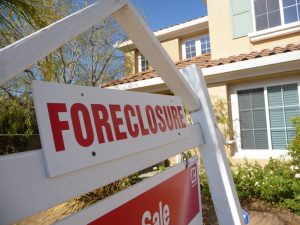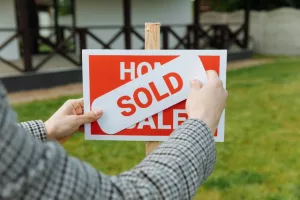Although the law does not mandate a specific settlement agreement, the law does require the parties to negotiate in good faith to avoid foreclosure where possible. After holding a hearing, the court finds that the lender has not negotiated in good faith. In that case, the court may issue an order prohibiting the lender from collecting interest and fees for a certain period or impose fines, among other penalties.
What Can You Do If You Are Facing Foreclosure in NYC? – 2023
Go Back To Previous PageDuring the pandemic, there was one looming worry that homeowners had. With all the jobs shuttered due to the COVID-19 crisis, many homeowners worried they wouldn’t make bank payments. Some people were not able to make their monthly payments on time. However, banks all offered up their assistance programs during the pandemic. While those programs did help lift a lot of families out of the grips of foreclosure in NYC, not all people were so lucky.
worried they wouldn’t make bank payments. Some people were not able to make their monthly payments on time. However, banks all offered up their assistance programs during the pandemic. While those programs did help lift a lot of families out of the grips of foreclosure in NYC, not all people were so lucky.
Moreover, banks changed their tunes on offering help now that the pandemic is over. You might wonder what you can do if you realize you can no longer make ends meet. Thankfully, there are things you can and should do if you face house foreclosure in NYC.
Also, remember that some specific purchasers are considering condo foreclosures in NYC. You don’t want your house to be on the list of homes in foreclosure in NYC; we will teach you how to avoid that.
What happens when payments are missed?
When you take out a loan to purchase a property in NYC, you are required to sign two documents. This is the promissory note and the mortgage (or deed of trust). The promissory note, effectively a glorified IOU, contains the promise to repay and the repayment terms.
Most loans allow a grace period of about 15 days when you miss a payment. After this, your loan servicer will assess a late fee. You can learn what your grace period and late charge amount are by looking at your promissory note, and you can find this information on your monthly mortgage statement.
After you’ve missed a few payments, your mortgage servicer will send you letters and make phone calls reminding you to get caught up with payments. Don’t ignore these; this is an excellent chance to discuss loan mitigation options.
Pre-foreclosure in NYC
State law requires that the lender wait 120 days before filing for pre-foreclosure with the county clerk. This means a pending lawsuit against the property and its title is publicly contested.
If the owner lives in the property, NY State law also requires that the lender send a notice within 90 days to the borrower. This informs them of how to cure the debt and a “Help for Homeowner” notice advising them of their rights during the foreclosure in New York, NY.
This 90-day time period runs in tandem with the 120 days. If still unresolved after 90 days, the lender can begin the pre-foreclosure process.
Summons and Complaint Letter
Once this happens, you will receive a “summons and complaint” letter informing you that your loan is in default and a pending lawsuit. Once this is received, you (the borrower) will have 20-30 days to respond in writing. If you haven’t already, now is the time to talk with an attorney who can help you with the reply and represent you in court.
The New York Foreclosure Process
Because New York is a judicial foreclosure state, the lender must go through the court process to foreclose. After the issue of the summons and complaint letter, you are allowed to reply with defense and counterclaims.
A vital safeguard that homeowners process is the settlement conference. Introduced in 2009, this process is part of the foreclosure process to help the two parties agree on the debt. It took place 60 days after the date when the summons and complaint were sent.
If you cannot reach an agreement in the settlement conference and don’t respond to the court action within the specified time, the lender can move to get a default judgment. If this happens, then you automatically lose the case. However, if you file an answer, the lender can’t file for default judgment. The lender will follow the file for a summary judgment to strike the answer and for the court to grant judgment in favor of the lender.
If the judge denies the judgment, then a trial will occur. If you lose the trial, the judge will sign a final judgment of foreclosure and sale against you. The lender will now be free to sell the property.
Before You Panic: Consider Other Options To Afford That Mortgage
While there are many different things that a person can mean by “not affording a mortgage.” Before you panic, ask yourself if you have emergency savings you can dip into. This is an emergency, and most people do this when they have to wait for unemployment insurance to kick in, anyway.
Get creative with your income. Could you be able to do some Doordashing to raise extra money? In many cases, that can help make ends meet in a pinch. Similarly, you might consider renting a room in your house for a month or so.
This might be able to give you enough income to make your mortgage. However, this isn’t an option that is available to everyone.
What Should You Do If You Can’t Afford Your Mortgage?
You should first figure out whether or not you can afford your mortgage soon. Sometimes, scraping by and waiting for that late paycheck may still be doable.
But there’s more that you should do here than assume it’s over. Here’s the full scoop on what you can do:
- Call the bank to find out what their mortgage rules are. The best thing you can do is call your bank and talk to them. Explain the situation, and ask what you can do. In many cases, they will tell you you have a grace period, which can buy you the time to make up the money you need.
- Try to pay what you can on the due date. This way, if you show some goodwill.
- If the bank gives you strict limits and you cannot afford the rent by then, you should consider asking for a short sale. A short deal lets you sell the home at a discounted price so the bank gets what they are owed without leaving you in the red. Banks have to approve short sales for them to happen.
- If that doesn’t work, consider reaching out for help. You can get help for this situation in New York City in many ways.
What Kind Of Mortgage Affordability Help Can You Get if facing foreclosure in NYC?
If you are in the New York City area, you can best call 211 to find out what available programs. People at this number will advise you on what to do if you face foreclosure in NYC. With that said, there are a couple of pretty standard options.
New York City Mortgage Assistance
The most common help people ask for in the area is the New York City Mortgage Assistance Program, or NYC-MAP. This program offers interest-free loans of up to $80,000 for mortgage payments to New Yorkers struggling to pay their mortgage.
This is an exceptional program, and you need to qualify. However, it could be your saving grace.
Making Home Affordable
You may also apply for the Making Home Affordable program. This national program works to help negotiate better rates for homeowners with their banking companies. This kind of counseling could work if you struggle to meet ends regularly.
Your One-Time Shot
In New York, the city offers everyone a one-time shot. You do not have to repay this small loan of around $1,000, which can only be used once and may not be enough to cover rent. Still, it’s always doable.
What if the lender fails to negotiate the Foreclosure in NYC in good faith?
Should You Declare Bankruptcy if facing foreclosure in NYC?
Declaring bankruptcy should be a last-ditch effort simply because it’ll bar you from getting loans for the next seven years. Bankruptcy can also mean that you might lose your home, but only if it’s a specific type of bankruptcy. However, you must do it if you face foreclosure in NYC, and people will often refuse to hire you if your bankruptcy appears on credit reports.
After all, it drastically decreases your credit rating too. That said, there are situations where it could be the right move. You might want to consider declaring bankruptcy if the following are true:
- You are in bad debt, and your credit cards are maxed out. You defaulted on your car loan and somehow owe stuff to your banker for a line of credit account. Sound familiar? If so, then it may be time to declare bankruptcy.
- There is no feasible way for you to pay back your debt. Sometimes life happens badly, and when this does, there is no way to make it out without the help of a bankruptcy declaration.
- The debt killing you is not tax-related or child support-related. In cases where taxes and child support harm your ability to budget, there’s not much you can do. Bankruptcy will not erase those debts.
- You must choose between paying your bills and eating, which is never a good sign. If your public assistance rejected you during this time, it’s time to consider bankruptcy.
- A bankruptcy lawyer advises you to do so. Even if paid to do so, bankruptcy lawyers take this declaration very seriously. They will do everything possible to avoid it if they can.
Conclusion If facing Foreclosure in NYC
When life happens, there are a lot of things that can go wrong. At times, paying your mortgage is very difficult to do. However, there is help if you find yourself in that rough spot in life. The best thing you can do to ensure you don’t end up in this situation is to buy a home well beneath your means and stock up on your emergency savings.
If you do not follow this advice, your property may end up on the list of condo foreclosures in NYC. We will write another blog post about homes in foreclosure in NYC: how to find foreclosure listings and foreclosed homes, inspect the property and run the proper legal, due diligence. Buying foreclosures in NYC and dealing with distressed properties are not for everyone, and having your NestApple real estate agent work with the listing agent and the lender remains critical.
However, if you manage to navigate through foreclosed homes for sale, they can result in excellent investment properties. Foreclosure houses in NYC are easy to find but hard to buy.


